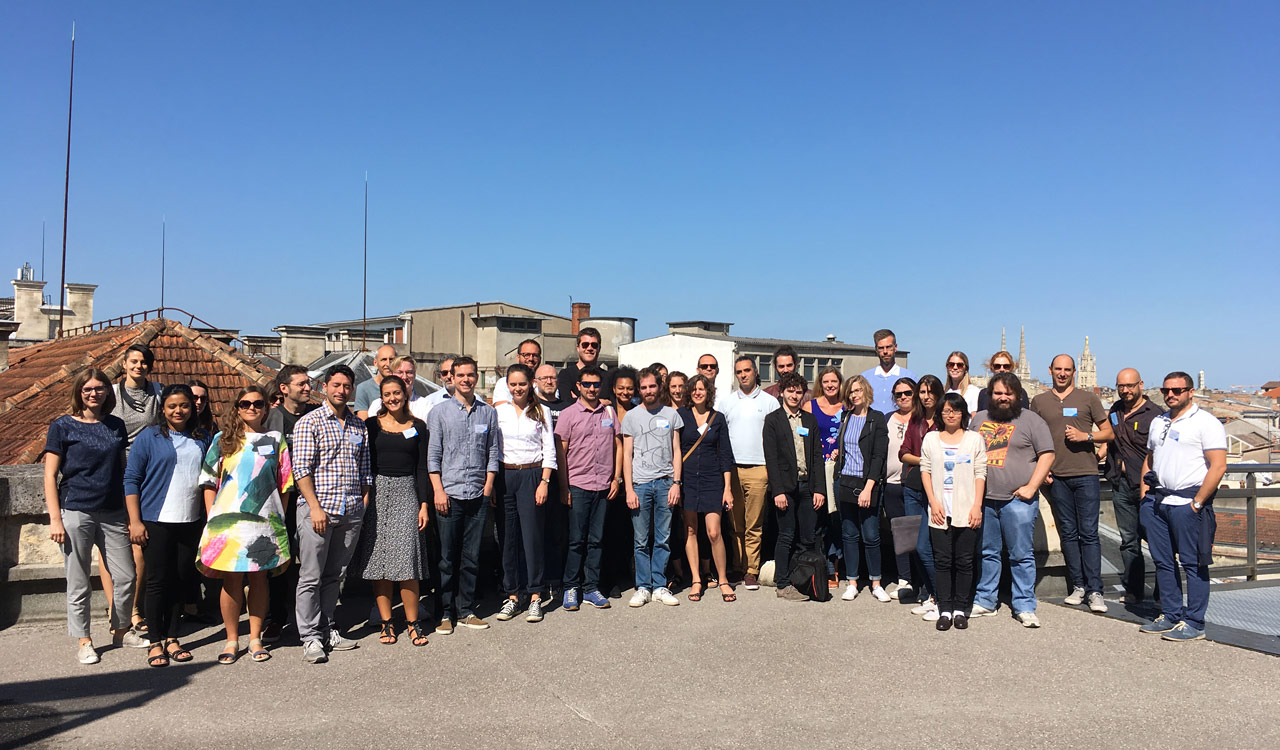RKTS Grant/Workshop Report by Hans IJzerman
01.11.2018, by Tina Keil in grant report, meeting report
Université Grenoble Alpes, France; "Solid Science Training Workshop" at University of Bordeaux, September 6th-7th, 2018

At the initiative and with the generous support of EASP, in September 2018, we organized a solid training workshop in Bordeaux, France. The workshop was primarily aimed at researchers in the European Union with fewer financial resources (based on per capita spending on research and development). The workshop brought together a number of experts in (social) psychology on a variety of topics: research workflows, power analysis, open source and open science software, the teaching of open science (CREP), exploratory psychological science, pre-registration in psychological science, and crowdsourcing psychological science. The workshop consisted of an intense two days focusing on both introductions of these topics and their most recent developments.
The overall feedback from participants is that they thought that the workshop was very well organized and covered important topics that will help them in their future research career. All topics were rated as very well done, but the workshop on power analysis and research workflow were frequently mentioned as very welcome. One other frequently mentioned point of feedback is that it is helpful to know that open science can be adopted in baby steps when improving one’s habits.
Some important points for improvement for a next workshop were the following:
- Take time to practice more (this was requested by the organization, but the way the organization can facilitate this is by built in explicit time to do so. In addition, this will likely require an extra day of workshop and thus somewhat more funding).
- Screen knowledge of participants before the workshop.
- Create a “road map” of open science practices. The research workflow somewhat meets this goal, but this could be made more explicit, particularly for those starting with these practices
- Ask participants to install R and RStudio before the workshop
- Ask participants to watch OSF videos to sign up and do some basic tasks on OSF before the workshop (and if they need further help doing so, do so during the workshop).
- Provide more tea, instead of mostly coffee.
- Some participants gave explicit feedback that they did not appreciate jabs at people in the field who do not adopt open science practices. These jabs are not seen as helpful in getting people to adopt these practices.
- Create some more time in the program to allow flash talks on open science practices from early career researchers.
- Can EASP also support these kinds of initiatives for researchers with fewer resources from non-European countries?
Speakers:
- Frederik Aust (University of Cologne): A practical primer on transparent research workflows
- Marco Perugini (Universita degli Studi di Milano-Bicocca): A practical primer to power analysis
- Michèle Nuijten (Tilburg University): Open source & open science software
- Fieke Wagemans (Universität Duisburg-Essen): Teaching open science: The CREP
- Rick Klein (Université Grenoble Alpes): Exploratory social science: Getting the most out of your data, and an introduction to concepts in Deep Learning and cross-validation
- Kai Jonas (Maastricht University): Pre-registration in psychological science (and how to fund it)
- Ben Jones (University of Glasgow): Crowdsourcing psychological science: The Psychological Science Accelerator
Number of Participants: 30
Workshop Resources (including videos) available on OSF or in the EASP members area
We would like to express our sincere appreciation to EASP for taking the initiative and for facilitating this very productive workshop.
Related content: